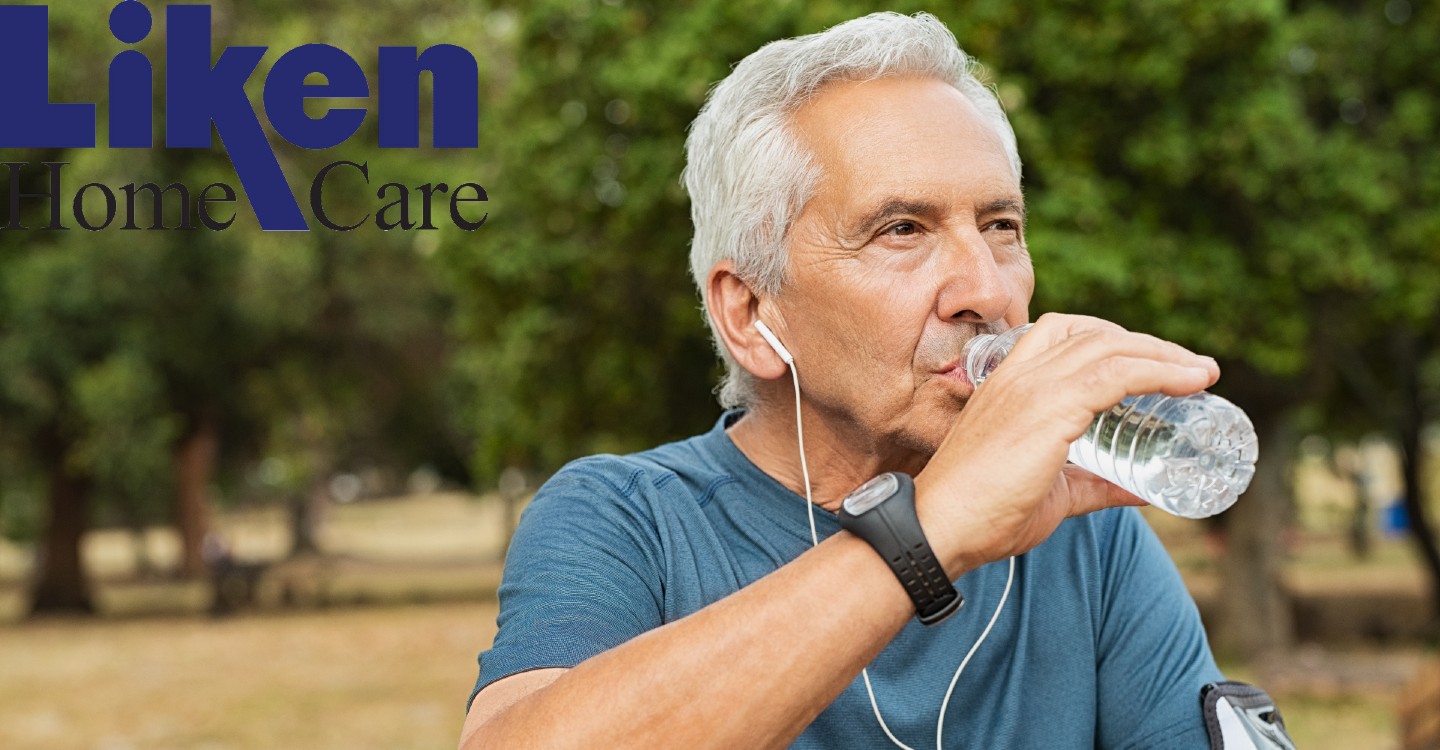How Older Adults Can Stay Hydrated During the Summer

The summer months can bring intense heat and humidity depending on where you are located. This can make it difficult to go outside and enjoy outdoor activities. When the weather gets hot, it becomes more important to keep hydrated. This is especially true for seniors, who may be more susceptible to dehydration. The good news is that there are ways to keep them safe during the warmer months. Here is what to know about dehydration and how it can be prevented.
How Dehydration Affects Seniors
Older adults are more susceptible to symptoms of dehydration for a number of reasons. For example, lower muscle mass and decreased kidney function can reduce the ability to conserve water in the body, making it more difficult to adapt to different temperatures. In addition, medical conditions and some medications can have an impact on the body’s ability to retain fluids. There are several symptoms that can indicate dehydration. These include little or no urination, irritability, dizziness, and rapid breathing and heartbeat.
How Much Liquid is Needed
According to the Centers for Disease Control, they suggest adults drink 48-64 ounces of liquid per day. This can increase depending on how much time a person spends outdoors in the direct heat. Multiple types of fluids can come in multiple forms, including water, soup, milk, and fruit and vegetable juices. However, not all liquids are beneficial. Experts recommend avoiding sodas and coffee, as they have caffeine, which can enhance feelings of dehydration.
Tips for Hydration
There are many ways seniors can keep hydrated no matter what time of the year. On a proactive level, they can drink multiple glasses of water or juice with a meal. In addition, suggest drinking a full glass of water while taking medication. In terms of remembering to drink liquids, you can enable an alert to remind seniors to drink something or provide them with a reusable bottle that indicates how much they have drunk in a day.
From a medical standpoint, it can be helpful to check with a doctor to determine how much liquid an older adult needs. This ensures they are getting the right about for their individual health needs, which can vary from person to person. It is also helpful to monitor the environment that a senior resides in. From an indoor standpoint, ensure that their air conditioning is running correctly and that they are able to close blinds and windows to reduce heat inside. Outside, make sure that they have shade to sit in and that they are properly dressed for the weather.
The heat can be difficult to get through during the summer. Fortunately, there are steps that older adults can take to keep hydrated and safe even during warm temperatures.
